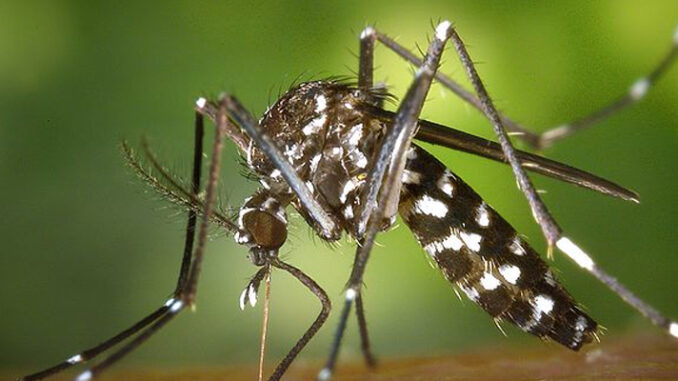
Why Do Some People Get Mosquito Bites & Others Don’t in Zimbabwe?
Have you got a problem of mosquitoes in Harare and Zimbabwe? Call 0772593344 for affordable, reliable and professional mosquito control services.
In Zimbabwe, like many parts of the world, mosquito bites are a common occurrence, especially during the rainy season. However, you might notice that some people seem to be magnets for these pesky insects, while others escape relatively unscathed. What makes some individuals more susceptible to mosquito bites than others?
Why people get bitten and others don’t
The answer lies in a complex interplay of factors, including:
1. Genetics:
Blood Type: Studies have shown that individuals with blood type O are more likely to be bitten by mosquitoes than those with blood types A or B. This is thought to be due to the presence of certain chemicals in the blood that attract mosquitoes.
Body Odor: Our genetic makeup influences the unique cocktail of chemicals we release through our sweat, which can attract or repel mosquitoes. Some people naturally produce more of these attractants, making them more appealing targets.
2. Environmental Factors:
Body Temperature: Mosquitoes are attracted to warmth, so people who tend to run warmer might be more likely to get bitten.
Carbon Dioxide: Our breath releases carbon dioxide, which attracts mosquitoes. Individuals who exhale more CO2, such as larger individuals or pregnant women, may be more vulnerable.
Clothing: Darker colors tend to absorb more heat, potentially making you more attractive to mosquitoes. Loose-fitting clothing that exposes more skin also increases your risk.
Location: Mosquito populations vary depending on the environment. Areas with stagnant water, lush vegetation, and warm temperatures provide ideal breeding grounds for mosquitoes.
3. Personal Habits:
Physical Activity: Strenuous exercise increases your body temperature and CO2 release, making you more appealing to mosquitoes.
Perfumes and Deodorants: Certain fragrances in these products can attract mosquitoes, especially floral scents.
Alcohol Consumption: Alcohol consumption can increase your body temperature and CO2 production, increasing your chances of getting bitten.
4. Individual Differences in Skin Chemistry:
Sweat and Skin Bacteria: The composition of our sweat and the bacteria living on our skin can influence how attractive we are to mosquitoes. Some people produce more of certain compounds that are appealing to these insects.
Lactate and Lactic Acid: These compounds are produced during physical activity and are known to attract mosquitoes.
5. Time of Day:
Dusk and Dawn: Mosquitoes are most active at dawn and dusk, making these times of day more risky for getting bitten.
Beyond the Bites:
It’s important to note that while mosquito bites are generally considered a nuisance, they can be more than just itchy bumps. In Zimbabwe, mosquitoes are known to transmit several diseases, including:
Malaria: This potentially fatal disease is a major public health concern in the country.
Dengue Fever: This viral infection can cause fever, headache, muscle and joint pain, and rash.
Yellow Fever: This serious viral disease can be fatal.
Zika Virus: This virus can cause birth defects in pregnant women.
Protecting Yourself from Mosquito Bites:
Since you can’t change your genetics or completely control the environment, the best way to protect yourself from mosquito bites is by taking proactive measures:
Use professional pest control services – At Pest Portal Zimbabwe, we offer professional pest control services for residential, commercial and industrial clients
Use insect repellent: Choose a repellent containing DEET, picaridin, or oil of lemon eucalyptus. Apply liberally to exposed skin and clothing, following the instructions on the label.
Wear protective clothing: Long sleeves, pants, and hats can help to cover your skin and reduce the chances of getting bitten. Light colors are less likely to attract mosquitoes.
Eliminate breeding grounds: Mosquitoes breed in standing water, so ensure there are no stagnant pools in your yard or surrounding areas. Regularly empty containers that collect water, such as buckets, flower pots, and tires.
Use mosquito nets: When sleeping, use a mosquito net treated with insecticide to protect yourself from bites while you sleep.
Avoid being outdoors during peak mosquito hours: Stay indoors during dawn and dusk, or if you must be outside, wear protective clothing and use repellent.
Conclusion:
While some people seem to be more susceptible to mosquito bites than others, understanding the factors that influence mosquito attraction can help you take steps to protect yourself. By implementing the strategies outlined above, you can significantly reduce your chances of getting bitten and the risks associated with mosquito-borne diseases. Remember, mosquito bites are preventable, and your health and well-being are worth the effort.
